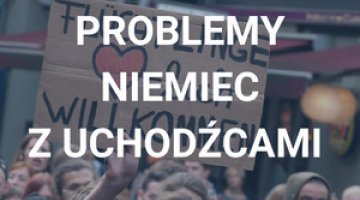Serbia: Prime Minister Vučić’s sweeping victory in the presidential race
On 2 April, the Serbian Prime Minister and leader of the centre-right Serbian Progressive Party (SNS), Aleksandar Vučić, won the presidential election with a support level of 55% in the first round (initial results, after 97% of the votes have been counted; the election will be repeated in eight polling stations due to the discovery of irregularities). Saša Janković, the former national ombudsman, came second with 16%, and the comedian Ljubiša Preletačević Beli was third with 9%. Voter turnout was relatively high, around 55%.
Vučić will take office from the outgoing president Tomislav Nikolić on 31 May. Nikolić did not seek re-election because he did not receive support from SNS. Prime Minister Vučić’s victory in the presidential election means dismissal of the centre-right cabinet. He has promised that a new government will be formed within the next two months. The name of the new prime minister has not yet been announced.
Commentary
· The fact that Vučić won the election in the first round proves that he is the dominant player in Serbian politics. Over the past few years, he has built up an image of a successful politician who cares for the ‘ordinary citizen’, and at the same time as a guarantor of stability, security and economic development. Another source of Vučić’s political popularity is his skill of presenting himself to the electorate as pro-Western but also as an independent player on the international arena. Vučić emphasises that European integration is his top priority (he has set an objective for Serbia to join the EU between 2020 and 2025), and at the same time his desire to maintain strategic relations with the global powers, especially Russia and China. His meetings with Chancellor Angela Merkel and President Vladimir Putin during his election campaign added credibility to this message. What also contributed to Vučić’s victory was the dominance of the pro-governmental trend in the media which not only gave much more publicity to his campaign but also became an instrument for attacks on opposition candidates. Vučić’s rule is criticised above all by the liberal elites from large cities. Mainly young people have protested against the outcome of the election and the irregularities during the election campaign. Between 10,000 and 16,000 people took to the streets, mainly in large cities (Belgrade, Nis and Novi Sad) chanting the slogan ‘protest against dictatorship’. However, these demonstrations are unlikely to generate a larger protest movement that would pose a threat to the stability of Vučić’s power.
· Once Vučić takes the presidential oath the government will most likely be informally subordinated to him. Although, according to the Serbian constitution, the government is the main executive authority, Vučić as the unquestioned leader of SNS will doubtless use his influence in the party to nominate members of the cabinet who are loyal to him. Vučić has forced his will on his party already on numerous occasions; for example, he in fact prevented President Tomislav Nikolić from seeking re-election. Vučić’s informal governing of the state will allow him to present himself as the nation’s leader and at the same time to avoid responsibility for implementing unpopular reforms (for example, Serbia is planning to restructure state-owned companies in connection with a loan of 1.2 billion euros granted by the IMF at the beginning of 2015).
· The presidential election laid bare the weakness of the opposition, who fiercely criticised Vučić during the campaign, accusing him of anti-democratic tendencies and corrupt links with business circles, and pointed out to the increasing subordination of the state and the media to the government coalition parties. The two opposition trends, liberal and nationalist, were represented by at least three candidates. As a result, the anti-governmental electorate was dispersed. The independent candidate Saša Janković, who had not previously been an active politician, garnered the largest support among Vučić’s opponents. Encouraged by this success, Janković will try to unite the left-wing opposition around him and may build a new political grouping. However, this will be difficult considering the ambitions of the existing, more experienced, opposition leaders. Nevertheless, the outcome of the election proves that Serbs distrust the existing opposition leaders. None of the opposition party candidates garnered more than 5% of the votes (Vojislav Šešelj, the leader of the Serbian Radical Party, with 4.5%, achieved the best result among them)
· The fact that Vučić has been elected president means that the existing trends in Serbia’s foreign policy will continue. The trend towards integration with the EU will continue, while efforts will also be made to maintain good relations with Russia and China. Vučić will emphasise that Serbia is a predictable and responsible partner for the EU in the context of the migration crisis. He will also make efforts to make sure that the West continues to view his country as a necessary partner for stabilising the political situation in the Western Balkan region. In turn, co-operation with Russia and China will still be especially important for Serbia in the context of their continuing resistance to Kosovo’s independence. Belgrade, in return, will remain open to building closer economic contacts with Russian and Chinese companies also in the energy, transport and arms sectors. Serbia will also emphasise its attachment to the policy of remaining outside any military alliances, especially NATO.




